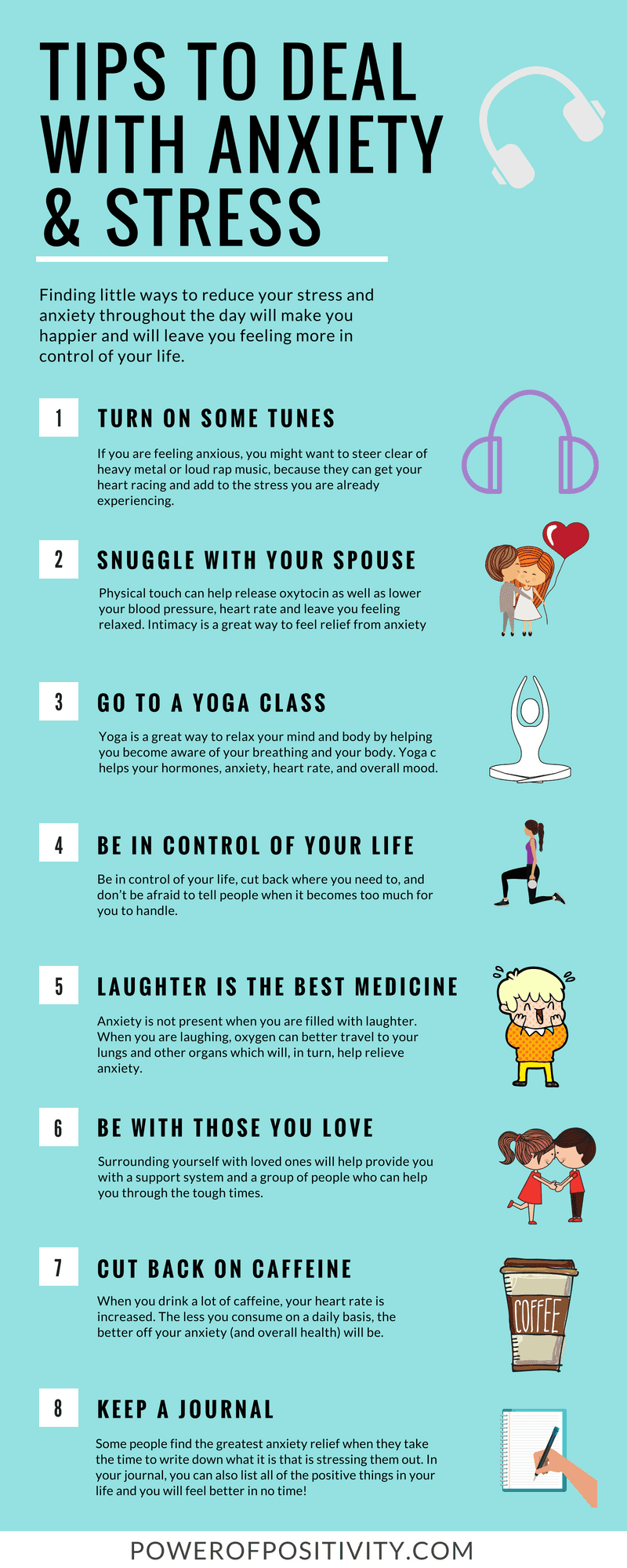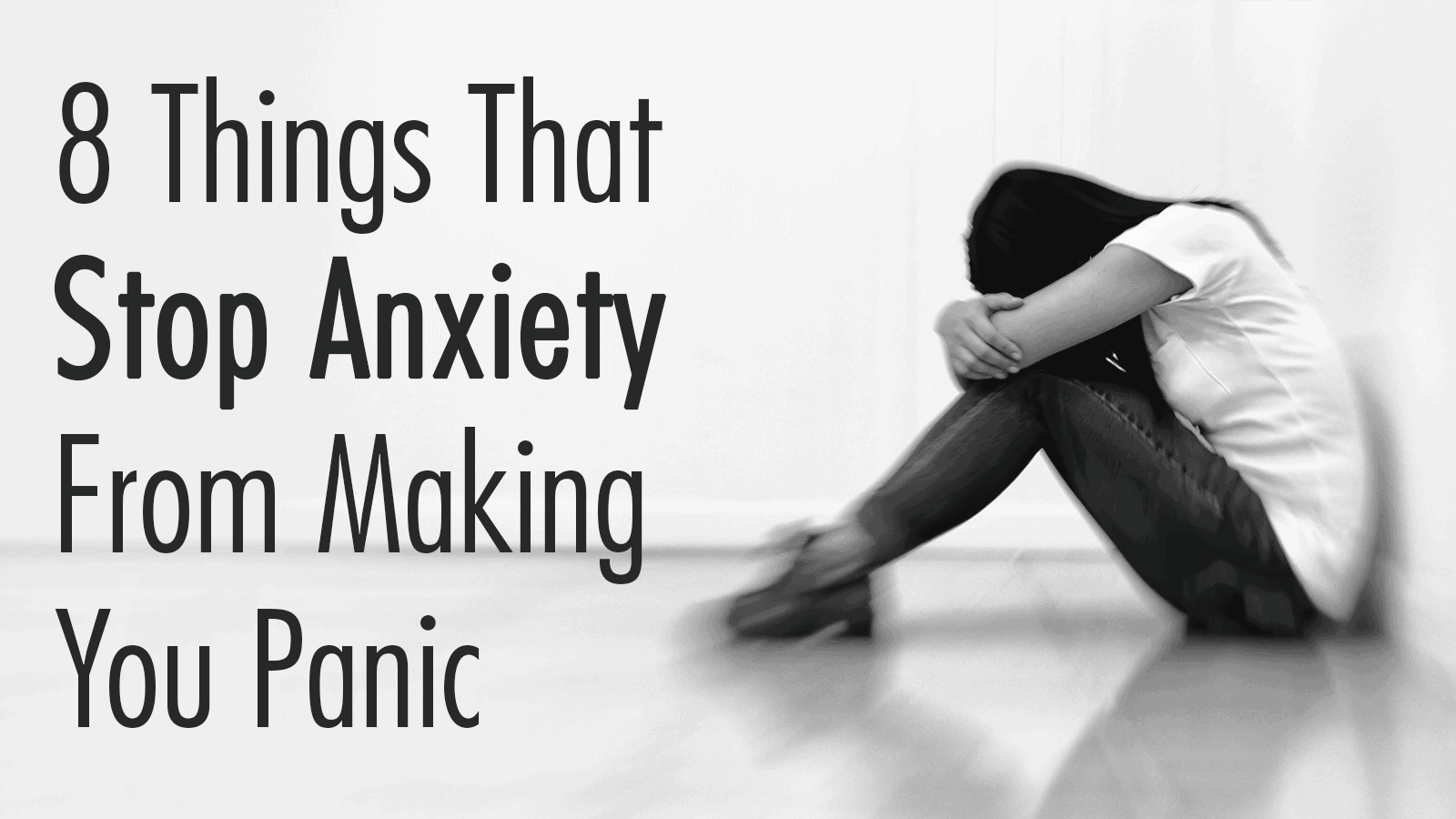An anxiety attack can be terrifying. It’s never easy to feel a surge of overwhelming fear, or feel you’re on the verge of passing out from distress. But some 40 million adults in America are believed to struggle with some form of anxiety disorder; you have to wonder how they manage an oncoming panic attack.
So, here’s some good news – there are strategies you can apply to prevent anxiety from making you panic. Because you can feel a panic attack coming on several minutes before it completely hits, you can do something about it and control these attacks.
Here Are Some Techniques to Help Keep Anxiety from Causing A Panic Attack
“Practically everybody knows what it’s like to feel anxious, worried, nervous, afraid, uptight, or panicky. Often, anxiety is just a nuisance, but sometimes it can cripple you and prevent you from doing what you really want with your life. But I have some great news for you: you can change the way you feel.” – David D. Burns
1. Deep breathing will help calm your nerves.
Sit comfortably in a quiet area and close your eyes. Feel the sensation as you inhale and exhale naturally through your nose. Concentrate on your breathing and don’t think about anything else. Block all thoughts from your mind and focus solely on your body’s rhythm.
Then slowly take deep breaths. Hold those breaths for a few seconds before you carefully exhale. Repeat the process as many times as you need and you’ll feel your mind settling down. If you must, make this a morning daily habit, as it benefits your health and well-being. Deep breathing controls your blood pressure, improves your metabolism, and sharpens your memory.
2. Assess your thoughts and limit your fixation on the worst-case scenarios.
Often, unrealistic fears and worries will trigger a panic attack. The thoughts you create in your head are simply based on what you feel, and feelings aren’t objective, right? So, let’s say you’re too nervous about a presentation and you start thinking about what will go wrong. Why not reframe your thoughts to think positively? You can actually train your brain to optimism, according to experts.
Positive thinking is not about denying that things can go wrong. There will always be stressors around you and that’s a fact. But if you approach your difficulties with positive thoughts first, you can be more proactive and productive about dealing with your anxieties.
3. Recognize that panic attacks are temporary.
Know that this crushing and debilitating feeling won’t last long. If you acknowledge this fact, it might help calm you down. In some ways, becoming more aware of your tight chest, pounding heart, and cold sweats can make the panic attack manageable.
Sometimes you just have to give in. Then, before you know it, you’re free from the discomforts. Ever notice that some things get worse when you fight it? That could also apply to a panic attack. It’s not going to be the end of you if you just ride it out.
4. Learn how to relax your muscles, aside from deep breathing.
Experts call this technique progressive muscle relaxation, which has been done for illnesses and pain since the 1920s. Begin by breathing deeply. Then move on to clenching your toes, flexing your feet, and pressing your heels to the floor for 10 seconds at a time. Do the same clenching and flexing technique for every muscle group in your body, such as your legs, hands, shoulders, abdomen, neck, and face. You’ll find it easier to practice this relaxation exercise every time you do it, and it will grow more natural to relax your muscles and your mind.
5. Eliminate some foods in your diet.
Caffeine, sugar, and processed food can cause panic attacks because these contain components that over stimulate the central nervous system. Try to develop a better diet richer in fruits and leafy greens. Experts from Harvard also suggest eating more foods rich in Vitamin B, magnesium, and zinc to help lessen anxiety. Some of these include spinach, legumes, whole grains, cashews, oysters, egg yolk, asparagus, avocado, and almonds.
6. Keep a journal.
If you have a record of your thoughts, you can more easily do a self-assessment. You’ll learn more about what makes you anxious and stressed and then have the power to challenge your reality. Write down your feelings, problems, and frustrations. Reread your journal after a few days or weeks to make an assessment.
You’ll probably notice that you weren’t objective at the time you wrote down your negative feelings. But with a clearer head – or perhaps once the anxiety-causing episode is over – you’ll have a different perspective. Journaling is a good exercise for mental health because you’ll realize any negative thoughts you wrote can also be uncreated by focusing on more positive thoughts or journaling the happy times as well as the challenging moments.
7. Confide in friends or family.
Don’t you feel great when you unload your anxieties and worries to a confidante? This is because talking eases those negative thoughts in your head and helps you sort out what you’re really feeling. Sometimes, hearing yourself discuss your worries to a friend also makes it less scary.
Keeping things to yourself can be overwhelming. If you let someone in, this other person might be able to offer you a solution. At the very least, they can help you see the situation with a different insight. Sometimes, however, people with anxiety don’t want to open up for fear of being judged, so pick a trusted person with whom you can discuss your fears.
8. Learn more about anxiety and panic attacks.
They say that knowledge is power, so why not read up on this condition and the symptoms? If you understand what’s really going on in your mind and body when you’re having panic attacks, you won’t be too afraid to deal with it.
Final thoughts
These strategies to stop anxiety from making you panic aren’t going to have results right away. But if you apply them in your life constantly, you’ll experience those attacks less frequently until the episodes disappear altogether gone.



















